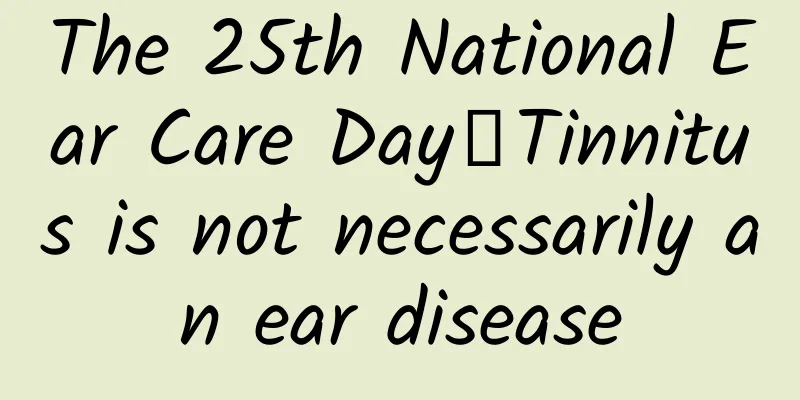Is it normal to have a dozen contractions a day?

|
As the pregnancy progresses, the uterine contractions felt by the pregnant woman will become more obvious, because uterine contractions are closely related to the growth of the baby. The faster the baby grows, the more obvious the contractions will be. Moreover, uterine contractions can also well reflect whether the baby is about to be born from the mother's belly. In a sense, uterine contractions are also a sign that the baby lets the mother know that delivery is imminent. But is it normal to have more than ten contractions a day? How many contractions a day is normal If a pregnant woman stands or sits in the same posture for a long time, she will feel her abdomen getting harder (i.e., tight stomach), which is called "false labor". Its characteristics are that the time of occurrence is irregular and the degree varies from time to time. Before delivery, "false labor" will become more and more frequent due to the traction stimulation of the lower part of the uterus caused by the descending fetal head. Uterine contractions usually begin about a month before delivery, and expectant mothers will feel that the frequency of uterine contractions is increasing. Generally, when calculating uterine contractions, if the number of contractions per hour is around 10, it is considered relatively frequent. You should go to the hospital in time and take some drugs to inhibit uterine contractions under the guidance of a doctor to prevent premature birth. If the contractions are not very frequent and there is no abdominal pain, just rest. It should be noted that you should not take any medication on your own to avoid harming the fetus. Moreover, taking medicine usually cannot relieve the symptoms. At this time, pregnant mothers should pay attention to rest, especially avoid stimulating the abdomen. If uterine contractions are accompanied by severe abdominal pain, such as pain that makes you restless and your work and life affected, you need to go to the hospital for treatment. What should I pay attention to when I have frequent uterine contractions? Between 20 and 37 weeks of pregnancy: Frequent uterine contractions can prevent premature birth About a month before delivery, contractions begin. Some people don't feel anything at the beginning. Only when they touch their belly with their hands will they feel the contractions. Moreover, expectant mothers will feel that the frequency of contractions is getting higher and higher. If the contractions are not very frequent and there is no abdominal pain, just rest. If the number of uterine contractions is around 10 per hour, it is considered relatively frequent. You should go to the hospital in time and take some drugs to inhibit uterine contractions under the guidance of a doctor to prevent premature birth. It should be noted that you should not take medicine on your own, and taking medicine generally cannot relieve the symptoms. At this time, the expectant mother should pay attention to rest, especially avoid stimulating the abdomen. If uterine contractions are accompanied by severe abdominal pain, for example, pain that makes you restless and your work and life affected, you should go to the hospital for treatment immediately. After 37 weeks of pregnancy: Frequent uterine contractions indicate labor is imminent By the due date, only painful uterine contractions are the precursor to labor. Some women feel the pain of the beginning of uterine contractions in the abdomen, while others feel it in the waist. The intensity of contraction pain also varies from person to person. When uterine contractions cause slight pain, it passes after a while, and then gradually the pain becomes stronger, the intervals between them shorten, and the pain duration prolongs. The contractions come like waves, with waves of pain spreading to the lower abdomen, or there may be lower back pain and a feeling of defecation. This type of contraction is in preparation for the birth of the baby. If a pregnant woman with her first child experiences pain more than three times within ten minutes, or if a pregnant woman with her second or subsequent child experiences pain once within ten minutes, she should go to the hospital to assess whether she needs to be hospitalized for delivery. If a pregnant woman with her first child experiences pain more than three times within ten minutes, or if a pregnant woman with her second or subsequent child experiences pain once within ten minutes, she should go to the hospital to assess whether she needs to be hospitalized for delivery. |
<<: How many contractions a day is normal?
>>: What to do if you have frequent uterine contractions at night
Recommend
What is Western food tartare? What etiquette should you pay attention to when eating Western food for the first time?
Western food, as the name implies, is food from W...
What to do if pregnant women have red and itchy facial allergies
Pregnant women have a slightly lower immunity tha...
Do you feel anxious when you think about going to work? These tips can help you "recover from anxiety"!
Dragons soar and tigers leap, auspicious stars sh...
What is the reason why women have dimples on their waists?
I believe that most women would like to have dimp...
What medicine is used to treat cervicitis?
Cervicitis is a type of gynecological disease and...
What to do if you have abdominal pain after cesarean section
There are two ways for women to give birth, one i...
Woman bleeds from below
When women have uterine problems, they should imp...
What causes itchy buttocks during pregnancy?
When a pregnant woman is pregnant, many changes w...
Can I sleep on my back during early pregnancy?
When a woman is pregnant, many things cannot be d...
Can stress affect pregnancy?
For couples who have been married for a year, if ...
What is konjac? How to store konjac?
Konjac is known as the intestinal scavenger and i...
Why can you get pregnant 4 days after ovulation?
The body structure of men and women is roughly th...
Is it easy for women to pass kidney stones?
Is it very easy for women to pass urinary stones?...
How to tie long hair beautifully and simply
Hair tying steps, how to make hair simple and bea...
Why do we eat mutton during the dog days? Can we soak our feet in moxa leaves every day during the dog days?
The weather is hot during the dog days, and people...







![[Health Science] You fall asleep, but your body is busy](/upload/images/67f149ebee00d.webp)

